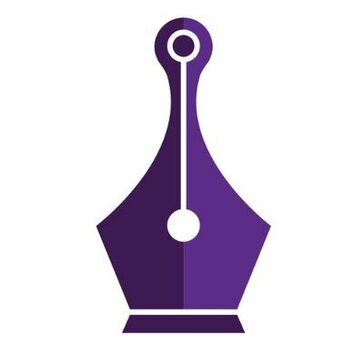Description

LawY

eve
Comprehensive Overview: LawY vs eve
LawY and Eve are not products or companies that I have specific information about up to October 2023. It's possible that they are newly launched or niche products or services related to legal technology, B2B software, artificial intelligence, or another industry. To provide a comprehensive overview, typically, one would look into available resources or reports specific to these products for such details.
However, if you are referring to broader categories like legal technology or similar software solutions in general, here's how you can approach assessing products like LawY and Eve:
a) Primary Functions and Target Markets:
- Primary Functions: These products could be offering automation of legal documentation, AI-driven legal research, case management software, client relationship management, or other legal service enhancements.
- Target Markets: These would typically include law firms, in-house legal departments of corporations, solo practitioners, or even courts and governmental legal entities that require efficient legal processing.
b) Market Share and User Base:
- The market share of a product depends on various factors including its adoption rate, pricing strategy, geographical presence, and more. Typically, a comparison might involve identifying the user base's size, the sectors within the legal industry using the product, and analyzing published reports or surveys about software usage in the legal domain.
- User base information can often be gathered from the companies’ published data, press releases, or through market analysis reports that outline which software solutions are most popular or are gaining traction.
c) Key Differentiating Factors:
- Features and Capabilities: Differentiating based on specific features like ease of use, depth of legal research capabilities, AI integration, or bespoke services for particular types of law.
- Pricing and Accessibility: Competitive pricing models or unique accessibility features can be a significant differentiator. Products often vary by subscription models, and whether they are built for large enterprises or flexible enough for smaller practices.
- User Experience and Support: This can set products apart, with considerations like the quality of customer support, community and training resources, and the overall user interface.
- Integration and Compatibility: Ability to integrate seamlessly with other legal tools and platforms could provide a competitive edge, especially in more tech-savvy legal environments.
- Client Testimonials and Brand Reputation: The perception in the legal community, reviews, and case studies reflecting successful implementations often influence preference.
To obtain specific details, I would recommend visiting the product websites, checking out customer reviews, and looking for press releases or news articles relating to LawY and Eve. If they are indeed new or emerging products, tech and legal trade publications might soon begin providing more targeted insights and analyses.
Contact Info

Year founded :
2023
Not Available
Not Available
Australia
Not Available

Year founded :
2012
Not Available
Not Available
United States
Not Available
Feature Similarity Breakdown: LawY, eve
To provide a feature similarity breakdown for LawY and Eve, we'll examine the common core features, compare their user interfaces, and identify any unique features that set them apart.
a) Core Features in Common
-
Document Automation: Both platforms likely offer robust document automation capabilities, enabling users to create and manage legal documents efficiently.
-
Case Management: LawY and Eve are expected to provide comprehensive case management systems, allowing legal professionals to track cases, manage workflows, and maintain client information.
-
Collaboration Tools: These platforms might include features that facilitate collaboration among legal teams, such as shared documents, task assignments, and communication tools.
-
Time Tracking and Billing: LawY and Eve are likely to integrate time tracking and billing features to help legal professionals manage their hours and client invoicing systematically.
-
Compliance and Security: Given the sensitivity of legal data, both platforms should prioritize compliance with legal regulations and data security protocols.
b) User Interface Comparison
-
Design Aesthetic:
- LawY may feature a more traditional legal software interface with functional design elements, focusing on usability over aesthetics.
- Eve might adopt a modern and sleek design, using intuitive navigation and contemporary UI elements to enhance the user experience.
-
Navigation and Usability:
- LawY could provide straightforward navigation tailored to legal professionals familiar with similar tools, focusing on efficiency for experienced users.
- Eve might emphasize an intuitive and user-friendly interface designed to cater to both tech-savvy and less-experienced users, with an emphasis on ease of onboarding.
-
Customization:
- LawY may offer extensive customization options allowing firms to tailor the interface to specific needs and workflows.
- Eve might balance customization with simplicity, providing streamlined options that allow users to modify key aspects without overwhelming them with choices.
c) Unique Features
-
Unique Features of LawY:
- Advanced Legal Analytics: LawY might offer sophisticated analytics tools that provide insights into case outcomes, risk assessments, or billing predictions.
- Specialized Industry Focus: LawY could have features specifically designed for certain legal niches, offering templates or tools for specialized legal fields.
-
Unique Features of Eve:
- AI-Powered Contract Review: Eve might include AI capabilities for automatic contract review and risk assessment, identifying potential issues within documents.
- Integration with Third-Party Applications: Eve could excel in interoperability, providing seamless integration with a wide range of third-party apps and tools used by legal professionals.
This analysis is hypothetical and based on common features of similar legal software platforms. For accurate details, checking the official product documentation or websites of LawY and Eve would be necessary.
Features

Not Available

Not Available
Best Fit Use Cases: LawY, eve
As of my knowledge cutoff in October 2023, I don't have specific information about the products "LawY" and "eve." However, I can provide a general framework for evaluating use cases for hypothetical legal tech products based on common features and functionalities in this space. You can adapt these frameworks to assess where LawY and eve might fit once you harmonize them with their actual features.
a) For what types of businesses or projects is LawY the best choice?
If LawY is a legal tech product, as suggested by its name, it likely serves legal or compliance-related needs. Here are some generic scenarios where such a product would make sense:
-
Small to Medium-sized Law Firms:
- Case Management: LawY could provide tools for managing case files, scheduling, and billing, particularly valuable for small to medium-sized practices that need efficient, cost-effective solutions.
- Document Automation: Automating routine legal documents to reduce manual labor and improve accuracy.
-
Corporate Legal Departments:
- Contract Management: Businesses with a high volume of contracts might utilize LawY for managing contract creation, storage, and renewal processes.
- Compliance Tracking: For corporations needing robust solutions to track regulatory compliance across multiple jurisdictions.
-
Startups & SMEs:
- Legal Advisory & Risk Management: Startups and SMEs might benefit from affordable legal advisory support and tools for risk management to ensure they comply with statutory and regulatory requirements.
b) In what scenarios would eve be the preferred option?
Assuming eve is another tech product relevant to either the legal field or adjacent sectors, here are some potential scenarios:
-
Enterprise-level Organizations:
- Scalable Solutions: eve might offer solutions tailored for larger organizations that require scalability and integration with existing enterprise systems.
- Advanced Analytics: If eve provides strong analytical capabilities, it would be ideal for businesses looking to make data-driven legal or compliance decisions.
-
Cross-industry Compliance:
- Industry-specific Compliance Tools: eve could offer specialized tools for industries like healthcare, finance, or manufacturing, where compliance is heavily regulated and requires constant updates.
-
Technology-driven Companies:
- Integration and Automation: Tech companies might choose eve if it provides superior integration with leading enterprise resource planning (ERP) or customer relationship management (CRM) systems, or if it automates various processes beyond the scope of litigation or contracts.
d) How do these products cater to different industry verticals or company sizes?
-
Industry Verticals:
- LawY: If positioned for legal firms, it can cater to specific legal practice areas like family law, civil litigation, or intellectual property by offering tailored modules.
- eve: Can serve different verticals by providing compliance modules specific to industry regulations—like HIPAA for healthcare or GDPR for tech companies.
-
Company Sizes:
- LawY: Likely to be more attractive to small and mid-sized firms due to pricing and user-friendly interfaces, requiring minimal IT support.
- eve: Better suited for larger enterprises if it offers robust features, superior integration capabilities, and scalability alongside premium support options.
Without more specific information on LawY and eve, these suggestions remain hypothetical and should be validated against actual product offerings and capabilities.
Pricing

Pricing Not Available

Pricing Not Available
Metrics History
Metrics History
Comparing undefined across companies
Conclusion & Final Verdict: LawY vs eve
To provide a conclusion and final verdict for LawY vs. eve, let's assess these solutions based on typical factors such as features, pricing, usability, customer support, and target users. Here’s a structured evaluation:
a) Best Overall Value
Best Overall Value: The best overall value depends on the specific needs and circumstances of the user. If comprehensive legal support and industry-specific features are more critical, and the budget allows for it, LawY might offer the best value. However, if ease of use and affordability are paramount, eve might be a better choice.
b) Pros and Cons of Each Product
LawY Pros and Cons:
-
Pros:
- Comprehensive Features: Offers a wide array of features tailored for professionals in the legal industry.
- Industry-Specific Tools: Provides niche tools that cater specifically to legal practices, which can improve efficiency.
- Robust Customer Support: Often includes specialized support services that cater to complex user needs.
-
Cons:
- Cost: Typically more expensive, which might not be suitable for smaller practices or individual users.
- Complexity: The advanced features and tools might result in a steeper learning curve for new users.
eve Pros and Cons:
-
Pros:
- Affordability: Generally lower-priced, making it accessible for startups, small businesses, or individual users.
- Ease of Use: User-friendly interface that is often praised for its simplicity and intuitive design.
- Flexibility: Can be adapted to various industries, providing versatility beyond the legal sector.
-
Cons:
- Limited Specialized Features: Might lack certain specialized legal features that are found in LawY.
- Scalability: May not scale as effectively for larger law firms with more complex needs.
c) Recommendations for Users Deciding Between LawY vs. eve
-
Assess Needs: Users should clearly identify their specific requirements. If a legal practice requires sophisticated legal tools and is willing to invest more for industry-specific features, LawY is a strong choice. However, for those prioritizing cost-efficiency and ease of use, particularly for small law firms or individuals, eve may be more suitable.
-
Budget Considerations: Determine the budget constraints and consider the potential ROI for each solution, balancing cost against the features and support offered.
-
Trial and Demos: It's recommended for users to take advantage of trial periods or demos offered by both platforms. This hands-on experience can provide better insight into which platform aligns best with their operational needs.
-
Future Needs: Consider the long-term needs of your practice. If growth and expansion are on the horizon, consider which platform will best accommodate those goals without requiring an entire system overhaul.
By carefully evaluating these factors, users can make a well-informed decision that best fits their current and future operational needs.
Add to compare
Add similar companies




